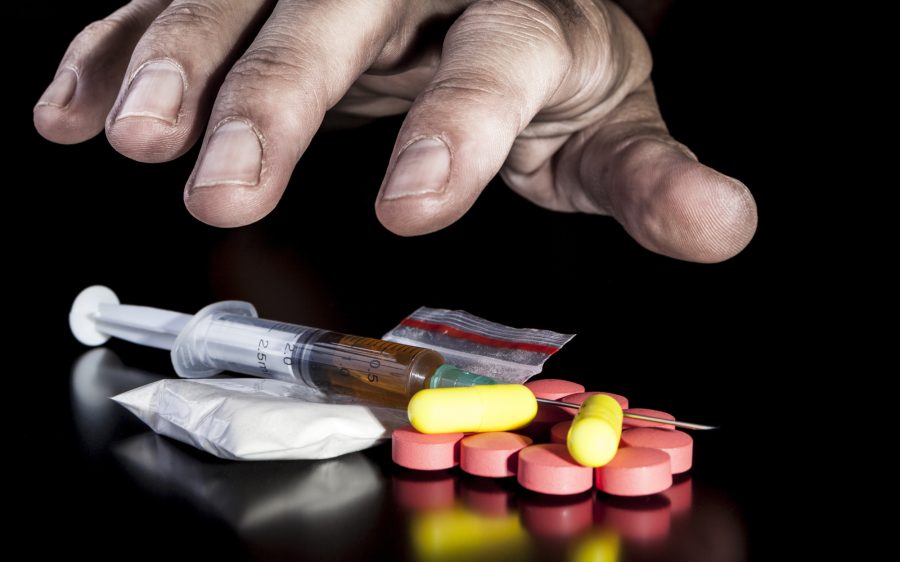
When it comes to helping a loved one overcome addiction, you want to have every benefit on your side. That includes an addiction recovery center that helps them from day one.
More than 21 million Americans aged 12 and up struggle with a substance abuse disorder. There are a lot of people struggling, and everyone is unique. So is every treatment facility.
The key is to find the right recovery center for you or your loved one. Here's what to look for in a quality treatment center.
The single most important factor in distinguishing a great addiction recovery center from a lackluster one is comprehensive therapy options.
Many individuals opt for a medical detox only, but the truth is that addiction recovery involves a lot more than just a detox. There are often psychological factors underlying substance abuse -- if these aren't treated, and healthier coping mechanisms aren't introduced, it will be that much harder to stay sober.
As such, you need to do your digging about therapy programs. Here are three things to keep in mind.
One of the first decisions you will have to make when choosing a rehab facility is deciding what program your loved one will take part in.
The options here are more than just inpatient or outpatient -- it also includes residential, intensive outpatient, as well as various types of therapies like individual, group, or family therapy.
Why is this important? Think of it this way: if someone is older, they may have children, pets, bills to pay, a job to go to. Sometimes, considering these factors, an outpatient center may be what's needed to balance the demands of everyday life while tackling addiction head-on.
On the other hand, if someone has tried outpatient before without much success, then you may want to look into inpatient treatment.
It's more common than you think.
Many treatment centers offer what's called "harm reduction" programs in which certain drugs are used to help counteract the negative effects of illicit drug abuse, as well as mitigate the effects of withdrawal.
However, the truth is that these programs are often swapping one chemical addiction for another. If the goal of treatment is total sobriety, then you may want to avoid a program that uses drugs to supplement treatment.
It's a bigger difference than you might think.
Many facilities only offer a 28-day program. While it does act as a solid starting point in recovery, it may not be enough to create sustained, stable sobriety. Especially if the addiction is severe or has been continuing for many years.
Addiction is about long-term, deeply ingrained unhealthy coping patterns. For many people, 28 days just isn't long enough to properly shake these patterns. If that is the case, you'll waste more time and heartbreak if you invest in a short-term program versus a long-term one.
On the other hand, if the person has been sober for some time and needs treatment as a remedial check-in after slipping up, short-term may be the better option.
The truth is, much though you might want to, you won't be able to be a 24/7 fixture in your loved one's rehabilitation. That's where the facility staff comes in.
While you're touring a potential addiction recovery center, talk to some of the staff, including nurses, therapists, social workers, in-house physicians, and so on. Come prepared with a lot of questions and get a feel for the atmosphere.
Like all therapy, it's difficult to see results if you're unclear what the goals are.
An addiction recovery center is no different. Different programs strive for different results.
Some consider a patient successful if they continue to attend meetings, others view success as simply completing the program, while still others measure success by the number of people who stayed sober after returning home. They may also consider other factors, like finding employment and familial relations.
If a center's goals don't align with yours or your loved one's goals, it won't benefit you to choose that treatment program -- otherwise, you're creating a great deal of unnecessary struggle.
It's all about how you measure progress.
It's standard practice for an addiction recovery center to do an assessment at the start of the program so that they have a sense of what they're dealing with. But the work of recovery doesn't stop on the first day.
As such, you should ask if the center also reassesses their patients periodically, or at a later date in treatment. This will give you a sense of how they measure progress.
You should also ask what their steps are if, after reassessment, a patient isn't where they should be at that point in the program. This will tell you something about how the program handles it if their patients are struggling, and whether they prioritize helping people get well over having people finish the program.
Finally, you should check on the center's accreditations. You might be surprised to find that not all facilities are actually accredited.
Facilities that do pursue accreditation will typically do so through the Joint Commissions or CARF. This means that they have been reviewed and approved by the Joint Commissions as a center providing quality care and meeting the appropriate safety standards.
When you visit a facility, ask to see their accreditation. They will usually be happy to provide it for you.
Addiction recovery is a long and often difficult process. That doesn't mean you or your loved ones have to go through it alone.
If you have more questions about recovery centers, check out our blog for posts like why you should choose a private rehab facility.
If you need to get started with a program, take a look at our programs page for a full breakdown of the treatment options available at Diamond House Detox, as well as our service areas.
If you're ready to get started, click here.
Resources:
Content medically reviewed by Vicky Magobet, PMHNP-BC, on April 2nd, 2018.